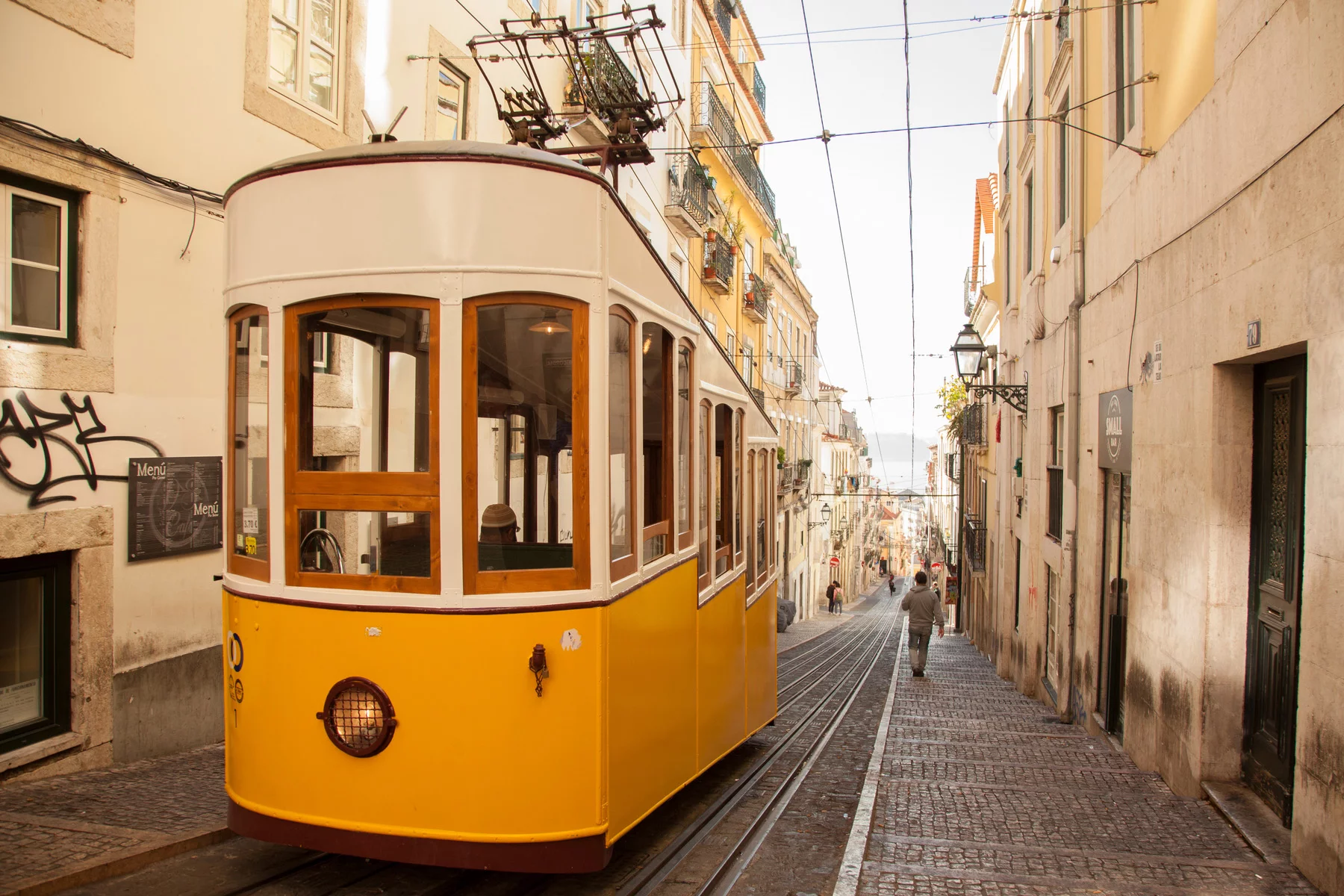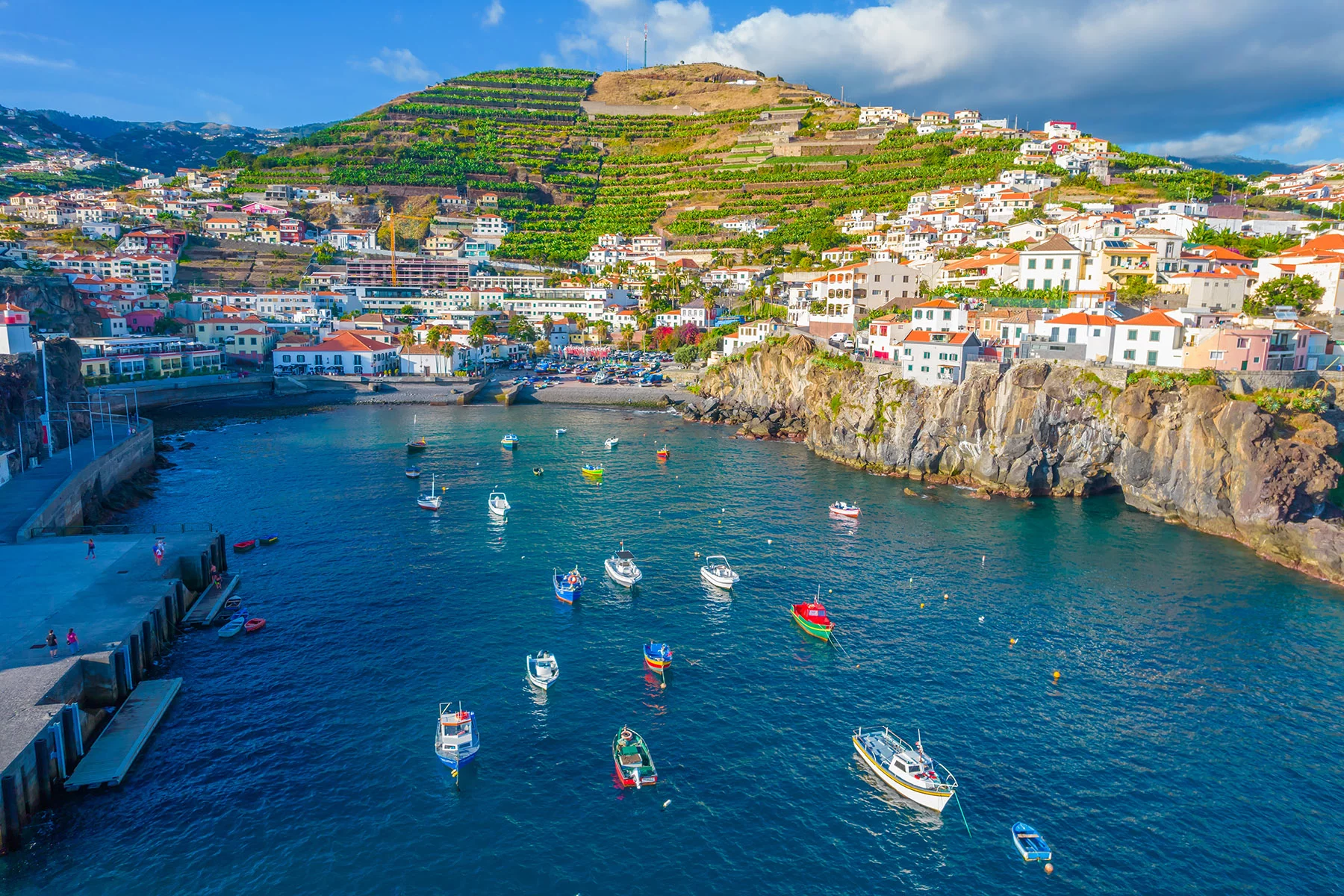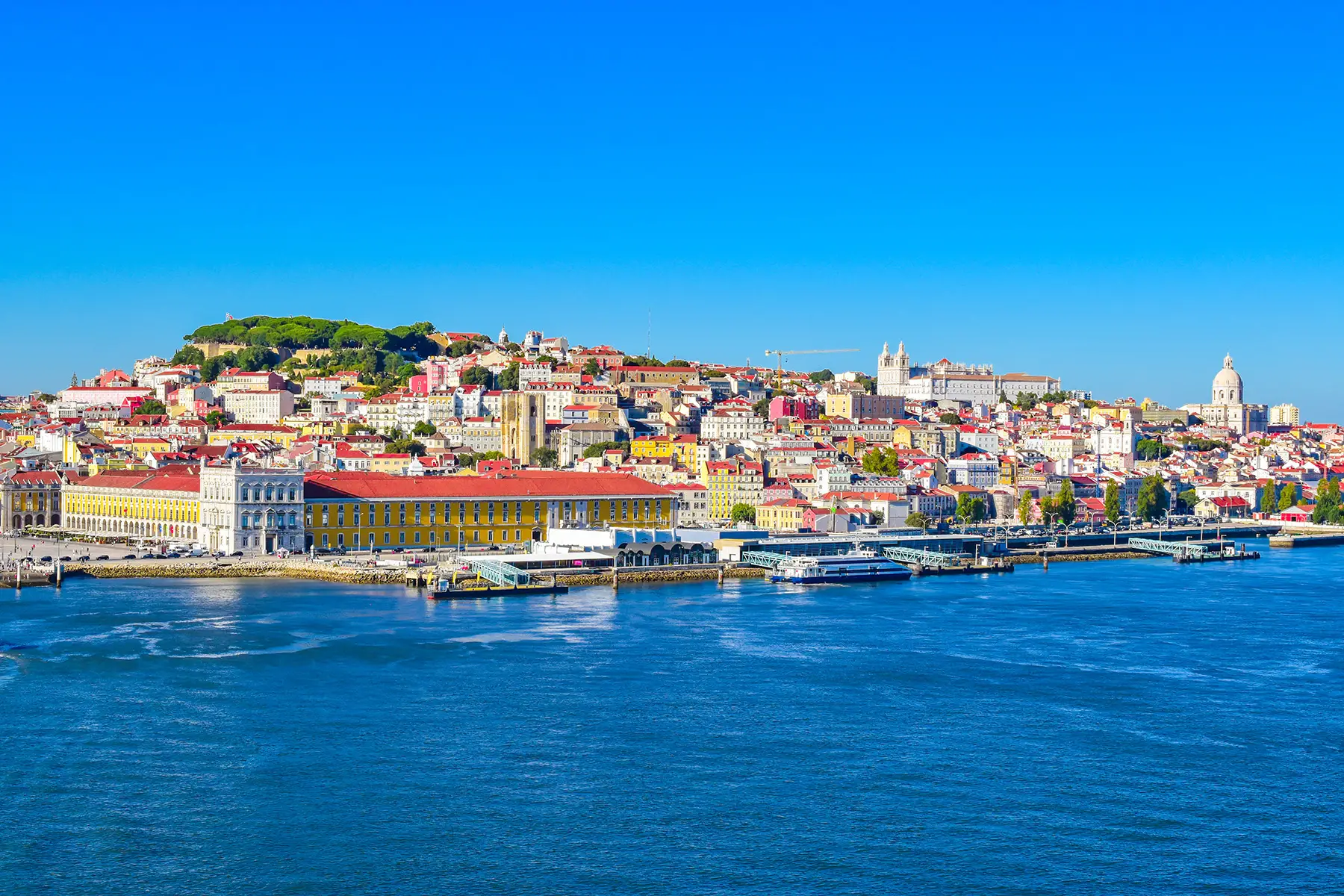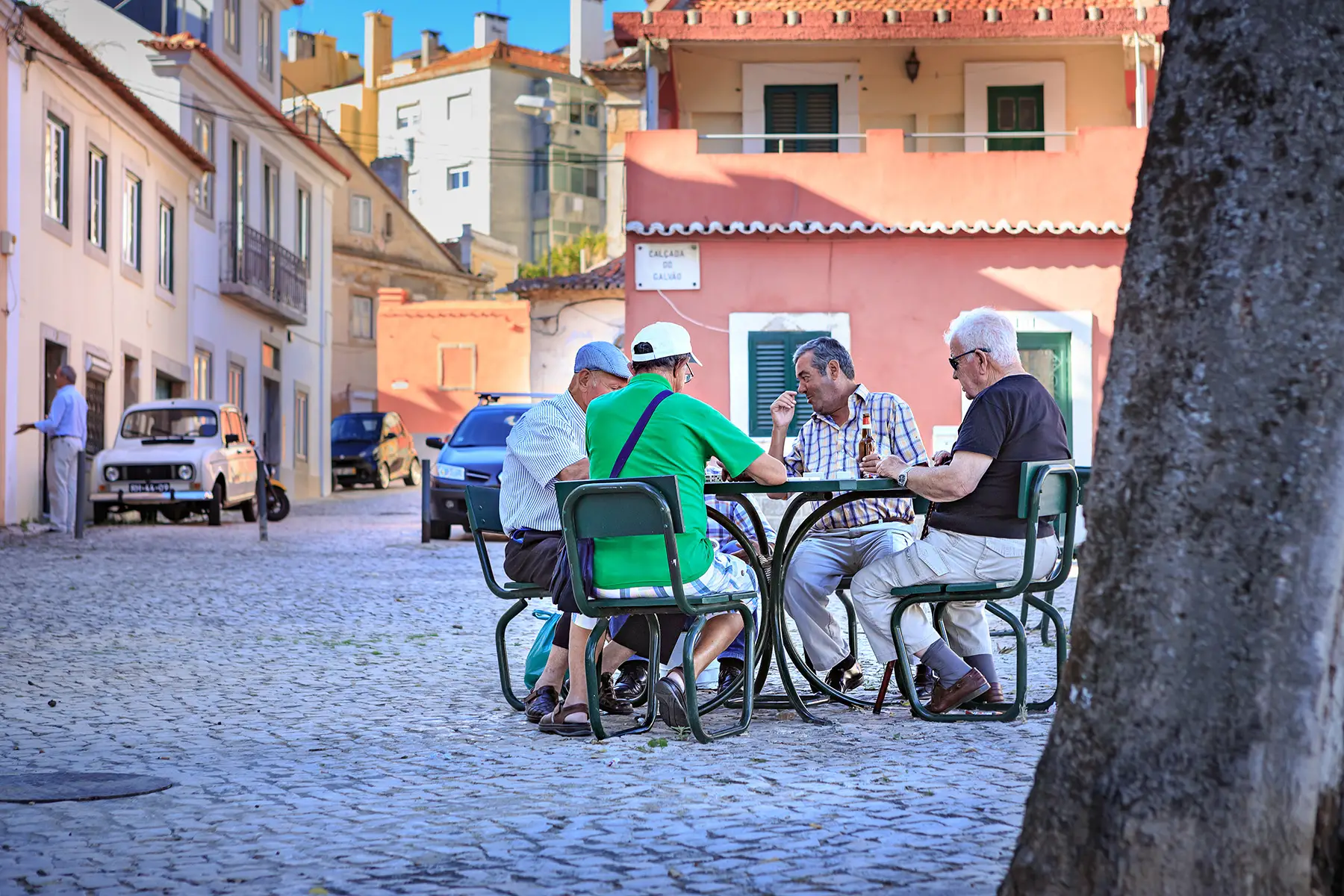Portugal is one of the most attractive places for expats to retire. The country boasts a pleasant climate, beautiful coastlines and reasonably priced property. If you are thinking of relocating to Portugal, there are some basics that you need to know first. Topics covered below include:
SJB Global
Let SJB Global guide you on a range of topics including saving plans, retirement and pensions transfers, investments, and more. This financial advisor provides a remote service, so you can contact their experts at a time that suits you. Get in touch with SJB Global to find out how they could help you in your life abroad.
Retiring in Portugal
From the stunning beaches of the Algarve to the thriving cities of Lisbon and Porto, Portugal offers a range of lifestyles for expat retirees looking for a place in the sun.

Portugal ranked 4th in International Living’s Global Retirement Index for 2022. Reviewers were impressed by the country’s friendliness and sense of community. It received mixed ratings in the 2021 Natixis Global Retirement Index, however, finishing 26th out of 44 countries. Portugal achieved an above-average score of 75% for quality of healthcare but scored just 61% for material wellbeing.
The OECD Better Life Index also brought mixed reviews. Portugal achieved above-average scores for housing and work/life balance. However, it has below-average scores for health status, subjective well-being, and jobs and earnings. Having said that, expat retirees will find much to love about this beautiful country. Lisbon placed 37 out of 231 cities on Mercer’s Quality of Living index for 2019. That’s a better ranking than Paris, London, and Madrid. Couple that with a comparatively low cost of living and it is easy to understand why so many expats retire in Portugal.
Who can retire in Portugal?
Retiring to Portugal is fairly straightforward if you’re from a European Union (EU) or European Free Trade Association (EFTA) nation. EU and EFTA nationals can apply for a residence permit from the Portuguese Agency for Integration, Migrations, and Asylum (Agência para a Integração, Migrações e Asilo – AIMA). You will need to do so at a regional immigration office that covers your area. You can then enjoy many of the same benefits as locals.
If you plan to stay in Portugal for more than three months, you’ll need to request a registration certificate. After five years of living in the country, you can apply for permanent residence.
However, the process is a little more complicated if you are not from an EU/EFTA country. You’ll first need to apply for a residence permit at the Portuguese consulate in your home country before moving to Portugal.

To qualify for a permit, you’ll need:
- A valid passport
- Proof of sufficient income or savings to support yourself
- Proof of health insurance
However, do keep in mind that the exact rules vary depending on where you’re from, so check with your consulate. Non-EU citizens can get a temporary residence permit for five years, after which time you can apply for permanent residence.
Golden visas to retire in Portugal
Portugal’s golden visa scheme is a fast-track route for non-EU residents to gain residence rights in Portugal.
Those who qualify for a golden visa will receive a waiver for entering the country and visa-free traveling within the Schengen area. You’ll initially receive a one-year residence permit, after which you can renew your visa every two years. After six years, you can apply for Portuguese citizenship.
Golden visas are primarily designed to attract foreign investors to Portugal, but they’re not as easy to obtain as they once were. To get a golden visa, you’ll need to do one of the following:
- Purchase real estate valued at least €500,000. As of 2022, real estate purchases in Lisbon, Porto, or coastal areas such as the Algarve no longer qualify. Real estate investments must instead be in inland Portugal or the islands of the Azores and Madeira.
- Purchase real estate, in the interior or islands, for at least €350,000 for refurbishment purposes.
- Make a capital transfer of €1.5 million or more to Portugal.
- Invest at least €500,000 in research activities in Portugal’s scientific or technology industries.
Retirement Visa in Portugal
The Portuguese government designed the D7 or Retirement Visa seemingly especially for attracting retirees, since it is based on passive income. This can come from a pension, intellectual property, real estate, royalties, and general investments.
The pension can be as little as the Portuguese minimum wage (€760 as of September 2023), but you must also prove that you have enough financial resources to support yourself during your time in Portugal. For more help with applying for this visa, it’s worth contacting an advisory service such as Pearls of Portugal.
Retirement age in Portugal
The retirement age in Portugal is 66 years and 7 months for both women and men. However, Portugal’s retirement age is indexed to average life expectancy. The COVID-19 pandemic has impacted life expectancy. This means the retirement age is set to drop by three months to 66 years and 4 months in 2023.
Despite this short-term fall, Portugal’s retirement age will likely rise in the long term. The OECD predicts the retirement age will reach 67 years and four months by 2035. By 2050 it is expected to reach 68 years and four months.
Pensions in Portugal
Portugal’s pension system has three pillars: a state pension provided by the government, voluntary occupational pensions, and private pensions.
The Portuguese state pension falls into two categories: a contribution-based pension funded by social security contributions, and a means-tested social pension for those who haven’t made sufficient contributions. The contribution-based state pension is available to people who have worked and paid into the social security system for at least 15 years.

Occupational and private pensions are not as common in Portugal as in some of its neighboring countries. You will find that only a small percentage of companies in Portugal operate their own pension plans.
Transferring an international pension to Portugal
EU citizens can transfer pension contributions from their home country to Portugal, along with contributions from any other EU countries they have worked in. The EU has sample stories on a web page to show how authorities are likely going to calculate state pensions from several countries.
The Wealth Genesis
At The Wealth Genesis, clients pay the same transparent fixed fee for investment and pension transfer services, eliminating conflicts of interest or surprises. The firm’s independent status gives them access to an unrivaled range of investments and products, delivering bespoke solutions to clients at the best value.
However, if you’re retiring to Portugal from a non-EU country, you should check the rules with the pension service in your home country. It is worth noting that Portugal has tax treaties (in Portuguese) with all EU countries, as well as many non-EU countries, to prevent double taxation.
Keep in mind, however, that Portuguese residents are taxed on their worldwide income. This means if you retire to Portugal, any private pensions paid from abroad could be subject to Portuguese taxes. In some cases, it may be possible to transfer private pension earnings without incurring charges via an offshore pension scheme. For example, if you are retiring to Portugal from the UK, this is possible through the Qualifying Recognized Overseas Pension Scheme (QROPS).
Another option is to apply for non-habitual residency (NHR) status in Portugal. This entitles foreigners to favorable tax arrangements for 10 years – more on this below.
Taxes on retired expats in Portugal
You are considered a tax resident if you live in Portugal for at least 183 days during a tax year or if you have permanent residence there on 31 December.
If you’re looking for advice on taxes in Portugal and wondering how best to manage your retirement, a financial advisor can help. Many even offer free consultations, like The Wealth Genesis.
NHR status offers favorable tax conditions, including for earnings that would otherwise be subject to retirement tax. NHR status is available to anyone who has not been a tax resident in Portugal in the last five years, as long as they meet certain criteria.
Those with NHR status can benefit from lower taxes in Portugal for a period of 10 years. Foreign pension income and withdrawals were once tax-free under the scheme. However, as of 2020, foreign pensions are now taxed at 10% for those with NHR status. In addition, any income generated in Portugal from work in certain fields (artistic, technical, or scientific) will be taxed at a flat rate of 20%. This is much lower than regular income tax rates, which can be as high as 48% in 2022.
Best places for expats to retire in Portugal
Housing is a key concern for expats looking to retire abroad. If you’re planning to buy a property, the good news is that Portugal’s house prices remain relatively low when compared to other European countries. However, keep in mind that house prices are rising. Research by Idealista in September 2021 showed house prices increased by 8.4% year-on-year, to reach an average of €2,266 per square meter. Whether you want to live in the heart of a bustling city or enjoy laid-back life by the sea, here are some of the best places to live in Portugal as an expat.
Algarve
The Algarve region is very popular with English-speaking expats. Made up of 16 municipalities on the Portuguese southern coast, it boasts beautiful beaches and clifftops and offers a high quality of life. It’s also one of the more expensive places to buy a home in Portugal. Average house prices in the Algarve rose by 7.9% to €2,527 per square meter in the year to September 2021.
Lisbon
Lisbon has everything you could want from a thriving capital city, from busy shopping districts to diverse local communities and picturesque coastal spots. There’s a perfect Lisbon neighborhood for everyone, from the fashionable Príncipe Real to the historic old town of Alfama.
Do keep in mind that Lisbon’s popularity comes at a cost. The city is the most expensive place to buy a home in Portugal. Properties cost €3,252 per square meter in September 2021, increasing by over 10% in a year.
Madeira
With a large expat community, the island of Madeira is one of the most popular places to retire to in Portugal.
The cost of living in Madeira is reasonable, though house prices are on the rise. The average cost of a home is €1,872 per square meter, as of September 2021. However, keep in mind this is after a sharp rise of 17% in the year to date.

Cascais
Located just 30 minutes from Lisbon, Cascais is very popular with expat retirees and tourists alike. Upmarket suburbs such as Estoril and Quinta de Marinha are among the biggest draws along the Portuguese Riviera. In particular, the picturesque marina is home to pristine beachfront properties. This beauty comes at a price, however, as by September 2021 the average home cost €3,100 per square meter.
Guimarães
The city of Guimarães, in the Braga district, is one of Portugal’s most historic locations. In fact, its city center is a UNESCO World Heritage site. Located around 35 miles from Porto, the city is walkable and features a range of amenities. You can experience shops and cafes in the main plaza to palaces, castles, and stone houses in the Old Quarter. Between July and September 2021, house prices in the Braga district rose by 15.6 percent overall to €1,185 per square meter.
Porto
Porto, Portugal’s second-biggest city, offers a more peaceful pace of life than Lisbon. It’s a walkable city with great architecture and shopping options. It also boasts some of the best transport links in Portugal, with an extensive bus and tram network and a large international airport. House prices increased by 8.4% in the year to September 2021. The average price per square meter in the Porto Metropolitan Area rose to €1,364.
Services, organizations, and clubs for expats retired in Portugal
Joining a local club or expat group can be a great way of settling into life in Portugal. With areas such as the Algarve, Madeira, and Lisbon home to many English-speaking expats, you should find it easy to find like-minded people.
As a starting point, you can check out our directory of expat groups and clubs in Portugal. You can also explore local groups on Facebook or Meetup.
Wills and inheritance in Portugal
If you die in Portugal, the country’s inheritance laws dictate that the inheritance process used in your home country should apply. For example, if you retire in Portugal from the UK, then UK inheritance laws will apply.
Portugal doesn’t impose an inheritance tax on property. Instead, stamp duty is payable by some beneficiaries, however, spouses and descendants are exempt.

Wills drawn up abroad are recognized in Portugal, and there’s no legal requirement to have a Portuguese will. Despite this, it’s worth considering writing one as a safeguard, especially if you’re got significant assets in Portugal.
Healthcare for retirees in Portugal
Portugal has a high standard of healthcare services. In fact, the Portuguese healthcare system was ranked 13th on the 2018 Euro Health Consumer Index. Portugal’s National Health Service – Servico Nacional de Saude (SNS) – provides free healthcare in Portugal to all citizens and residents. The SNS serves residents through community health centers, hospitals, and local health units. It is state-funded.
If you are retiring to Portugal from an EU country, you can access free healthcare with an S1 form. This certificate is issued by the pension center in your home country. If you’re retiring to Portugal from the UK, more information on the S1 form can be found on the UK government site.
Some EU citizens retiring to Portugal take out additional private health insurance. There are a variety of social and private voluntary health insurance schemes available in Portugal. Private plans can help you avoid the long waiting times often encountered in the state system. You may also be able to access additional services such as opticians and dentists in Portugal.
Notably, expats retiring to Portugal from non-EU countries aren’t entitled to free healthcare until they become permanent residents. This means you may need to take out private health insurance for your first five years of residence.
Useful resources
- Portuguese National Health Service (SNS) – for healthcare information and assistance
- Agency for Integration, Migrations, and Asylum (AIMA) – for information on visas and resident status
- OECD Better Life Index Portugal – for information on the standard of living








